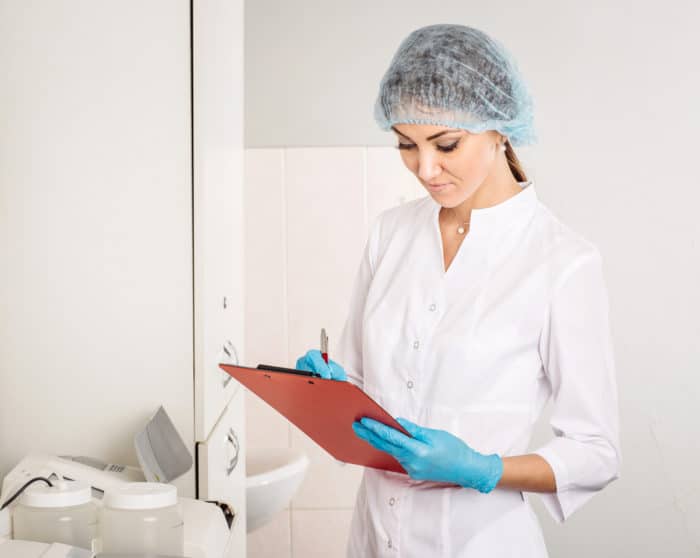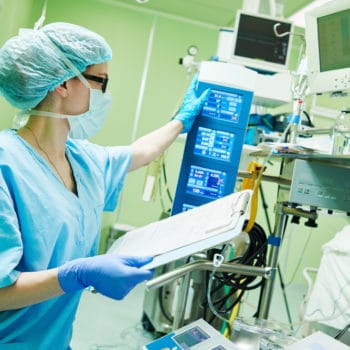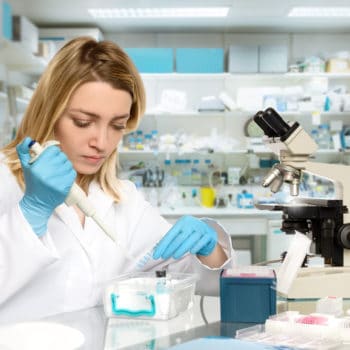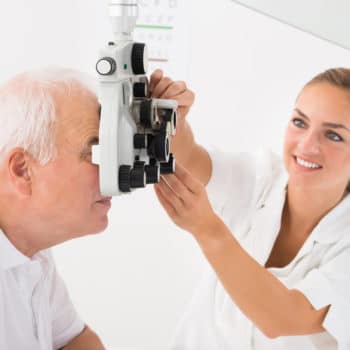Why We Love It
-
$45,730Potential Avg. Salary
-
23.2%Job Growth Rate
-
Growing DemandJob Outlook
-
Dependable Daily WorkloadCareer Attribute
Medical technologists, or medical technicians, are individuals that collect samples from patients and runs various tests on the patients’ samples. These tests analyze tissue, body fluids, and other body substances to assist in diagnosing disease, or discovering any issues a patient may be having.
Recommended Schools
What is a Medical Technologist?
The following responsibilities are common for Medical Technicians:
- Conducts chemical analysis to determine any abnormalities of bodily fluids like tissue, urine, spinal fluid or blood
- Analyzes blood cells by counting and identifying them using microscopes and other equipment
- Maintains, cleans and operates laboratory equipment and supplies
- Prepares reports of medical findings of the data and information collected
- Maintains that patient and hospital records are kept under the proper confidentiality laws
A Day In The Life
Medical Technologists are individuals that preform medical tests that assist in the diagnosis of disease in patients. They spend the bulk of their time preforming tests on patients bodily fluids and blood. They use a variety of complex medical equipment to test the patients specimens. They use cell counters, cultures, microscopes, and calibrators. They must know how to maintain, clean and fix this necessary testing equipment as well. These individuals could be searching for bacteria or viruses within a patients blood material or they could be testing urine samples for drugs or medication levels. They also study the chemical content of blood samples to detect cholesterol or blood sugar levels. They must follow the laboratories protocols for analyzing, interpreting and delivering test results.
Typical Work Schedule
Patients need medical personnel at all hours of the day. Therefore, this is a full-time shift only position.
Projected Job Growth
Due to the fact that a large number of new and innovative blood tests will be emerging and the influx of baby boomers and the aging and steadily increasing human population, opportunities in this career path are estimated to be higher than the national average.
Typical Employers
Most of these individuals are employed by laboratories within hospitals or clinics and private labs. They analyze the specimens given to them by phlebotomists, nurses and physicians on-site in the lab.
Recommended Schools
How To Become a Medical Technologist
A bachelor’s degree in medical technology is recommended for an entry-level position for this occupation. Coursework should include science-cased classes like biology, chemistry, life sciences and mathematics. Experience in this field is also desired for most positions. Internships and volunteer programs during the students schooling are excellent ways to gain the coveted experience that employers desire. Almost all states also require a certification for medical personnel. These requirements vary state to state. So it is important that the student does their research to understand what is required of them depending on the state they are employed in. In order to obtain their certification, the student will be required to complete an accredited program, pass a certification exam, complete clinical hours and maintain continuing education courses annually. Most states require a license to work in this field. The majority require at least a four-year degree and passing the state boards examination.
These individuals should be meticulous and pay attention to detail. They also must be able to think and act quickly, problem-solve and multitask. Because these individuals will be responsible for accurately following instructions for testing things like bodily fluids and tissues, they need to also have strong technical skills and superior organizational skills.
Medical Technologist Salary Data
We’ve provided you the following to learn more about this career. The salary and growth data on this page comes from recently published Bureau of Labor Statistics data while the recommendations and editorial content are based on our research.
National Anual Salary
Low Range
$32,030Average
$45,730High Range
$70,340National Hourly Wage
Low Range
$15/hrAverage
$22/hrHigh Range
$34/hrHow do Medical Technologist salaries stack up to other jobs across the country? Based on the latest jobs data nationwide, Medical Technologist's can make an average annual salary of $45,730, or $22 per hour. This makes it an Above Average Salary. On the lower end, they can make $32,030 or $15 per hour, perhaps when just starting out or based on the state you live in.
Salary Rankings And Facts
#443 Nationally for All Careers
Programs and Degrees
Here are the most common degrees for becoming a Medical Technologist. a is usually recommended and specifically a degree or coursework that prepares you for the particular field, see below.
Highest Education Among Medical Technologists
- 4.8% Doctorate
- 7.5% Masters
- 21.3% Bachelors
- 14.4% Associates
- 31% College
- 19.3% High School
- 1.7% Less than High School
Job Growth Projections and Forecast
2014 Total Jobs
102,2002024 Est. Jobs
125,900Job Growth Rate
23.2%Est. New Jobs
23,700How does Medical Technologist job growth stack up to other jobs across the country? By 2024, there will be a change of 23,700 jobs for a total of 125,900 people employed in the career nationwide. This is a 23.2% change in growth over the next ten years, giving the career a growth rate nationwide of Below Average.
Growth Rankings And Facts
#36 Nationally for All Careers
What Companies Employ The Most Medical Technologists
| Industry | Current Jobs | New Jobs Needed | % Increase |
|---|---|---|---|
| General medical and surgical hospitals; private | 39,200 | 2,800 | 3% |
| Offices of physicians | 9,500 | 2,100 | 2% |
| General medical and surgical hospitals; local | 4,500 | -100 | 0% |

















